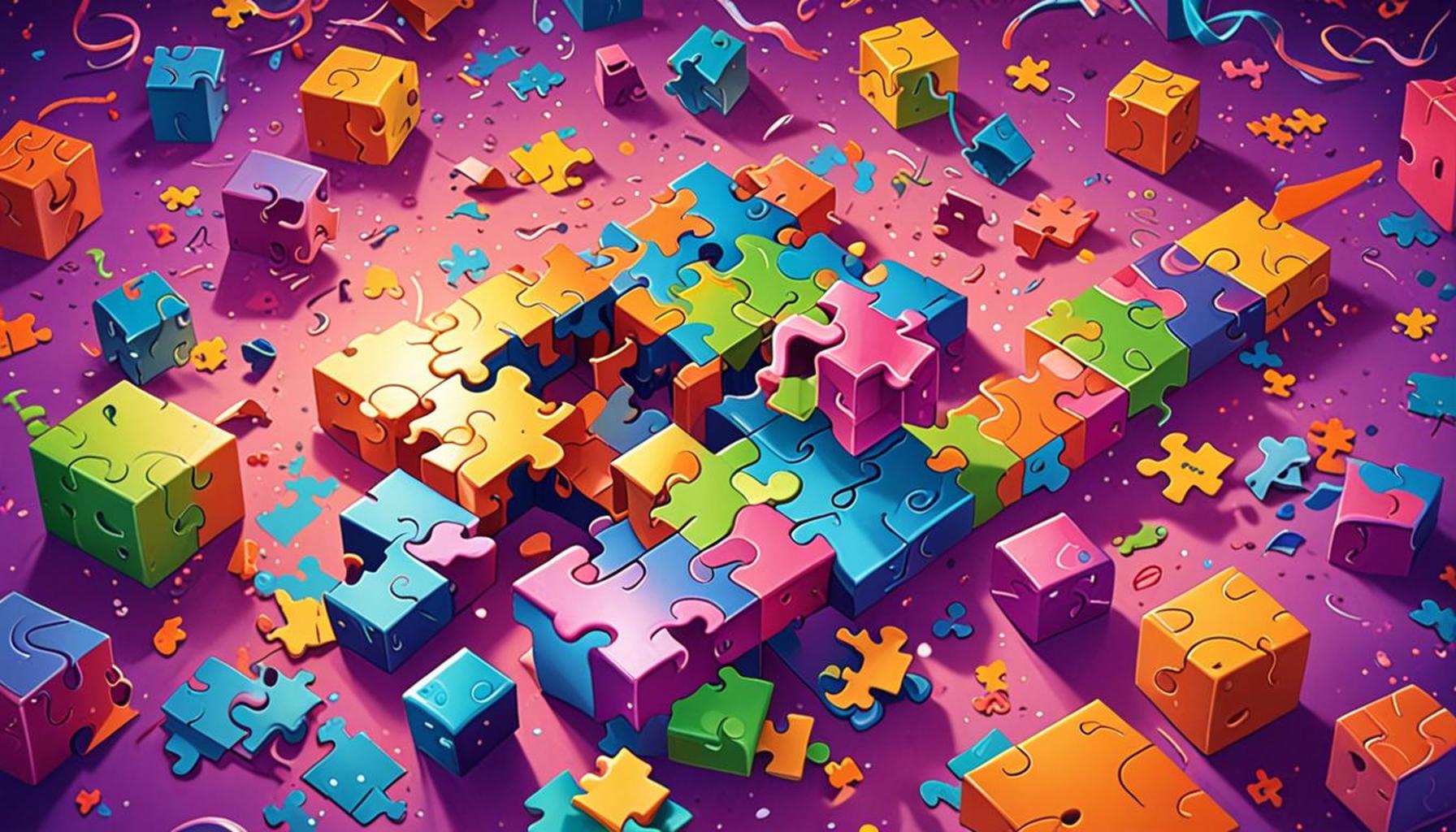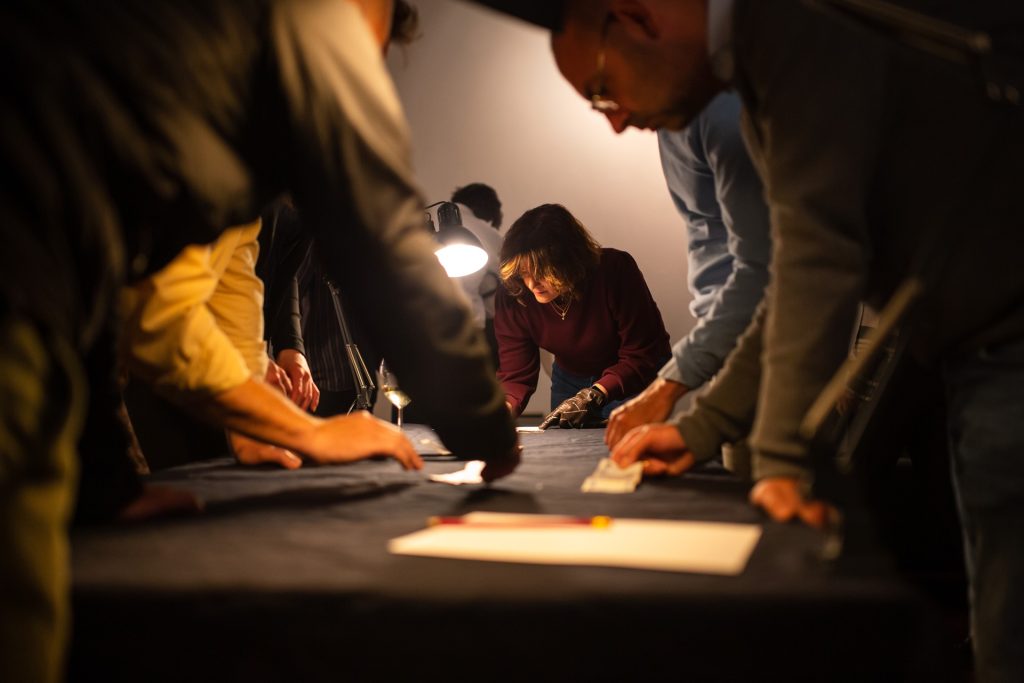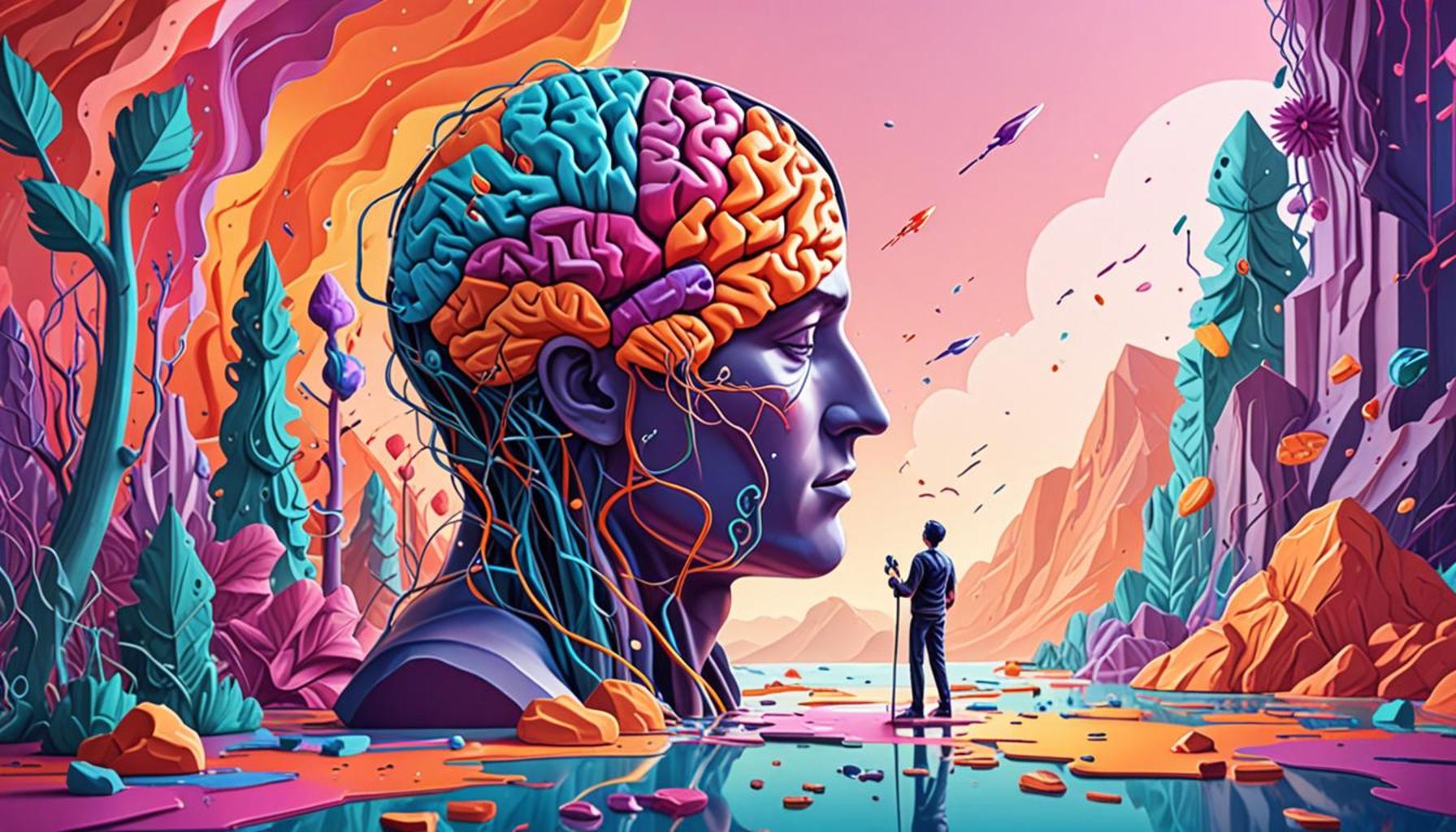The Role of Creativity in Problem Solving through Puzzles and Riddles

The Role of Puzzles and Riddles in Cognitive Development
Puzzles and riddles have intrigued and entertained people for centuries, serving as engaging challenges that push our cognitive boundaries. They are not merely forms of entertainment but also essential tools that significantly enhance our problem-solving skills. As individuals encounter increasingly complex issues—whether in personal life, academia, or the workplace—creativity emerges as a crucial factor in discovering innovative solutions.
One of the primary advantages of engaging with puzzles and riddles is that they enhance critical thinking. Complex puzzles often require players to analyze given information, recognize patterns, and deduce possible outcomes. For example, the classic Sudoku game challenges players not only to fill in numbers but also to employ logic and systematic analysis to ensure that each row, column, and square abides by set rules. This level of engagement sharpens reasoning skills, laying a foundation for effective decision-making in real-world scenarios.
Additionally, puzzles and riddles boost creativity by encouraging participants to approach challenges from multiple perspectives. Consider an escape room challenge, where teams must use a mix of logic, creativity, and teamwork to solve clues and unlock the next steps. This scenario pushes participants to think innovatively and explore unconventional ideas, fostering an environment where creative solutions thrive. Studies have shown that creativity is not solely an innate talent but a muscle that can be exercised, and what better way to do so than through playful problem-solving?
The collaborative aspect of solving riddles is another critical benefit. Many puzzles are designed for group settings, which encourages teamwork and enhances communication skills. For instance, a technical team in a corporate setting might tackle a series of challenging brain teasers together, which not only makes the process enjoyable but also strengthens bonds among members. Working collaboratively leads to a richer diversity of ideas and perspectives, ultimately yielding more robust solutions to complex problems.
Engaging with puzzles also fosters resilience. When we learn how to decipher clues and overcome obstacles in riddles, we cultivate a mindset that emphasizes persistence and adaptability, key traits in navigating everyday challenges. The experience of grappling with and eventually overcoming difficult problems reinforces the idea that setbacks are part of the journey rather than endpoints.

In an ever-evolving landscape filled with intricate challenges, harnessing creativity through puzzles and riddles can unlock new opportunities for personal and professional advancement. By embracing these enjoyable yet intellectually stimulating activities, individuals can cultivate critical skills necessary for success in various fields. With this understanding, it becomes clear that what may seem like mere entertainment has profound implications on our cognitive development and problem-solving capabilities.
DISCOVER: Click here to learn how strategy games can lower your stress
Unlocking Creative Potential Through Engaging Challenges
As the world becomes increasingly interconnected and complex, problem-solving has emerged as an essential skill across various domains, from education to business. Puzzles and riddles serve not only as a source of entertainment but also as compelling mechanisms for enhancing creativity in problem-solving. Through engaging with these challenges, individuals can cultivate a unique approach to issues, often resulting in novel solutions that might otherwise remain undiscovered.
At the heart of this enhancement is the concept of divergent thinking, a cognitive process that involves generating multiple solutions to a single problem. Puzzles often require players to think beyond the obvious and explore various angles before pinpointing a solution. For instance, logic puzzles may present multiple variables and constraints that demand flexible thought and a willingness to experiment with different strategies. This application of divergent thinking lays the groundwork for innovative problem-solving abilities, encouraging individuals to tackle real-world issues from multiple vantage points.
Moreover, the practice of solving puzzles and riddles can foster a sense of intrinsic motivation. Unlike rote learning, which can often feel dull and disinteresting, these engaging challenges ignite a sense of curiosity and desire to explore. Neuroscientific studies have demonstrated that when individuals encounter stimulating tasks, the brain releases dopamine, a neurotransmitter that drives motivation and reinforces positive feelings. This motivation then feeds into one’s creative problem-solving skills, making the act of tackling a challenging puzzle more than just a game; it’s an exercise in mental agility.
Key Benefits of Puzzles and Riddles in Enhancing Creativity
- Encourages Innovative Thinking: Puzzles push you to think outside the box, facilitating inventive approaches to challenges.
- Fosters Resilience: Encountering setbacks during puzzle-solving can cultivate a resilient mindset that embraces difficulties as opportunities for growth.
- Improves Cognitive Flexibility: Engaging with varied riddles enhances your ability to switch between different ideas and perspectives efficiently.
- Stimulates Collaboration: Solving puzzles as a group can lead to diverse ideas and enriched problem-solving experiences as each member contributes their unique perspective.
Furthermore, puzzles and riddles have the power to bridge the gap between creativity and analytical thinking. They provide a structured environment where logical reasoning coexists with imaginative explorations. This fusion is particularly beneficial in fields such as science, technology, engineering, and mathematics (STEM), where creative problem-solving is paramount. By honing these skills through gameplay, individuals can equip themselves with the tools necessary for innovation and adaptability in their respective fields.
Ultimately, embracing the fun and challenge of puzzles and riddles can serve as a catalyst for developing effective problem-solving strategies. By integrating these engaging activities into daily routines, individuals can bolster their ability to tackle complex problems with creativity and confidence, solidifying the role of entertainment as a powerful contributor to cognitive development.
When exploring the fascinating connection between creativity and problem-solving, one cannot overlook the impact of puzzles and riddles. These engaging challenges do more than just entertain; they serve as powerful tools for enhancing our creative thinking skills. Puzzles and riddles stimulate the brain, encouraging lateral thinking and the ability to approach problems from different angles. By engaging in these activities, individuals learn to break down complex issues into manageable components, fostering a greater sense of adaptability and innovation.The structured yet open-ended nature of puzzles allows for exploration of multiple solutions. As people navigate through clues and possibilities, they cultivate resilience, developing a willingness to experiment and take risks with their ideas. This aligns seamlessly with modern workplaces, where rapid problem-solving is often linked to creative thinking. Moreover, the shared experience of solving puzzles in groups enhances collaboration and communication skills, vital for any team-oriented success.Incorporating puzzles and riddles into educational settings can also significantly benefit students’ learning processes. Research suggests that students who regularly engage with these forms of brain teasers exhibit improved cognitive abilities and are more likely to think outside the box. Thus, fostering a culture that embraces creativity through playful yet challenging activities is essential for nurturing future innovators.In summary, the role of creativity in problem-solving transcends mere individual benefits, extending into collaborative environments and educational contexts, enriching the overall learning experience and fostering a generation of creative thinkers equipped to tackle complex challenges.
DISCOVER: Click here to uncover the benefits
Exploring Cognitive Benefits and Real-World Applications
In addition to enhancing creativity, engaging with puzzles and riddles offers a myriad of cognitive benefits that extend far beyond mere amusement. These engaging activities stimulate brain regions responsible for memory, attention, and logical reasoning. Research conducted by the University of California indicates that regularly engaging in problem-solving activities can lead to increased neuroplasticity, which refers to the brain’s ability to reorganize itself by forming new neural connections. This development is crucial as it can lead to improved cognitive function and better overall mental agility.
A significant aspect of puzzle-solving is its capacity to improve critical thinking skills. As individuals work through complex riddles that require analyzing information, individuals automatically strengthen their ability to assess solutions critically. For example, crossword puzzles often demand not only vocabulary knowledge but also the capacity to think about synonyms, antonyms, and contextual clues. This analytical approach encourages individuals to weigh pros and cons, ultimately shaping better decision-making capabilities applicable in both personal and professional spheres.
Real-Life Applications of Puzzle-Solving Skills
The skills gained through puzzles and riddles are highly transferable and can be applied within various life domains. For instance, in the corporate world, companies are increasingly leveraging these activities as team-building exercises aimed at enhancing creativity and collaboration among employees. By presenting employees with complex challenges that require group problem-solving, organizations not only foster team cohesion but also stimulate innovation by creating a platform for diverse perspectives and collaborative effort.
- Education: Educators can harness the power of puzzles and riddles in classrooms to create a dynamic learning environment. Integrating gamified learning experiences helps students grasp complex concepts while developing their critical thinking and teamwork skills.
- Therapeutic Practices: In therapeutic settings, puzzles can serve as tools to enhance cognitive function in individuals with memory impairments. Neuropsychologists often utilize riddles as a part of cognitive rehabilitation therapy, encouraging patients to enhance their synaptic pathways.
- Event Planning: Organizing scavenger hunts and escape room activities have become popular choices for parties and educational settings. These events rely heavily on problem-solving and creativity, leading participants to collaborate effectively in addressing a series of challenges.
Moreover, puzzles and riddles are instrumental in fostering a growth mindset, a concept popularized by psychologist Carol Dweck. By framing challenges as opportunities for growth, individuals learn to embrace struggle and persist through obstacles rather than becoming discouraged by setbacks. The iterative nature of many puzzles teaches the value of resilience; when faced with difficulty, the instinct to rethink the problem fosters an adaptive problem-solving approach rooted in creativity.
Interestingly, the current digital landscape has made puzzles more accessible than ever. Mobile applications and online platforms offer users a plethora of puzzles designed to sharpen cognitive skills while engaging their creative faculties. With so many options available, individuals can incorporate puzzle-solving into their daily routines, making it easier than ever to cultivate a mindset geared towards creative problem-solving.
DIVE DEEPER: Click here to uncover the link between games and stress relief
Conclusion: Embracing the Creative Challenge
In summary, the interplay between creativity and problem-solving through puzzles and riddles presents a fascinating landscape where practical skills merge with imaginative thinking. Engaging with puzzles not only sharpens vital cognitive abilities such as memory, attention, and critical analysis but also cultivates a mindset that embraces challenges as opportunities for growth. As we’ve explored, this powerful fusion of skills has real-world implications, influencing spheres ranging from corporate teamwork to educational strategies and therapeutic practices.
The benefits of incorporating puzzles into daily life extend beyond simple entertainment. As individuals navigate through the intricate layers of riddles, they hone their ability to approach problems from diverse angles and think outside the box. This creative dilemma-solving ability is more pertinent now than ever, particularly in our rapidly changing world where adaptability and innovative thinking are paramount.
Furthermore, the digital age has democratized access to these valuable cognitive resources, granting individuals the ability to engage with puzzles anytime and anywhere. By integrating these activities into our routines, whether through mobile apps or social platforms, we can continue to sharpen our mental faculties while reaping the rewards of creativity. Ultimately, the journey through puzzles and riddles not only equips us with essential skills for everyday life but also ignites a spark of creativity that inspires us to tackle challenges head-on. As we continue to explore this exciting domain, it becomes clear that fostering creativity through problem-solving is a pathway to a brighter, more innovative future.


